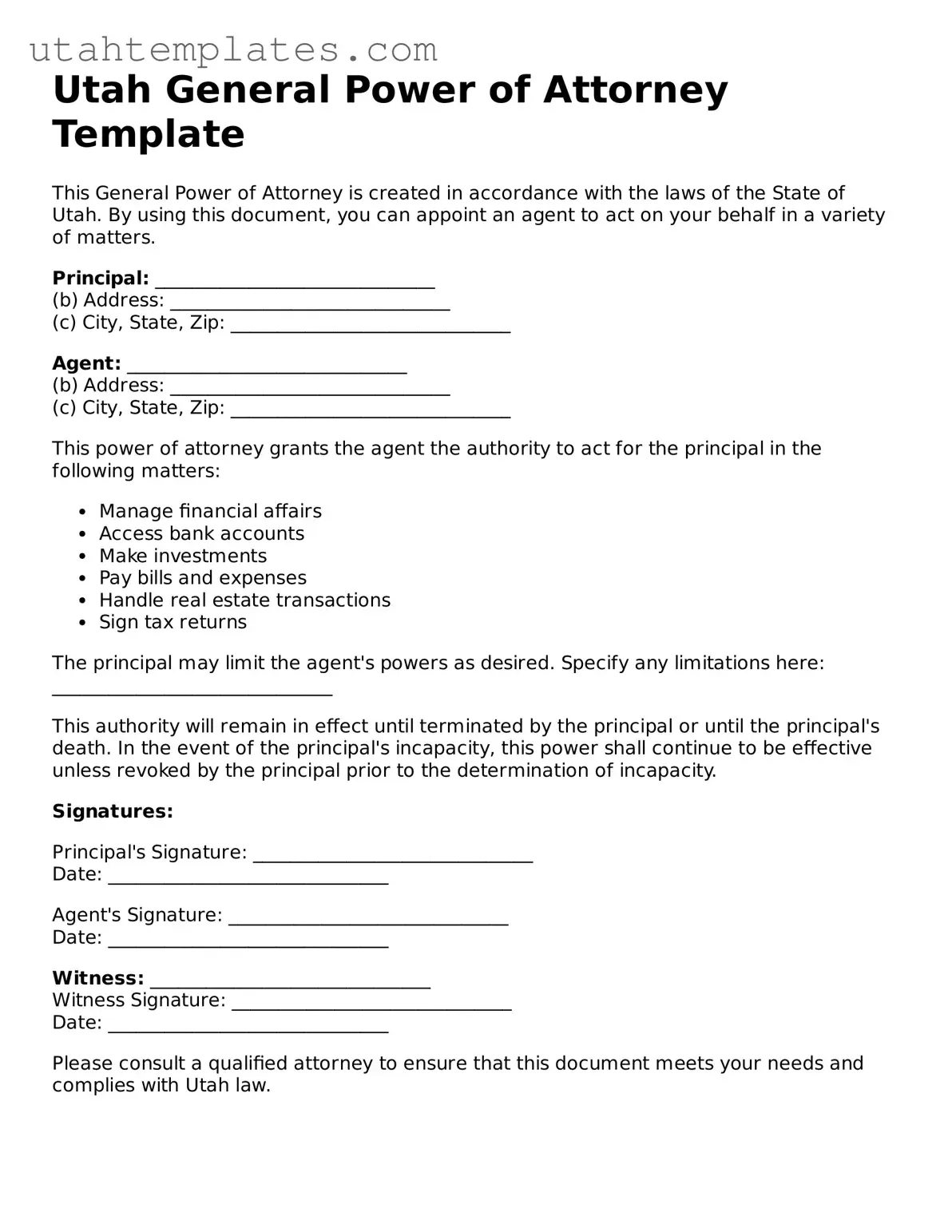Free General Power of Attorney Form for Utah
A General Power of Attorney form in Utah is a legal document that allows an individual, known as the principal, to grant another person, referred to as the agent, the authority to act on their behalf in a variety of financial and legal matters. This form can be crucial for managing affairs when the principal is unable to do so themselves. Understanding its components and implications is essential for anyone considering this important decision.
Launch General Power of Attorney Editor Here

Free General Power of Attorney Form for Utah
Launch General Power of Attorney Editor Here
Need to check this off quickly?
Fill out General Power of Attorney online without dealing with paper.
Launch General Power of Attorney Editor Here
or
Free PDF File
